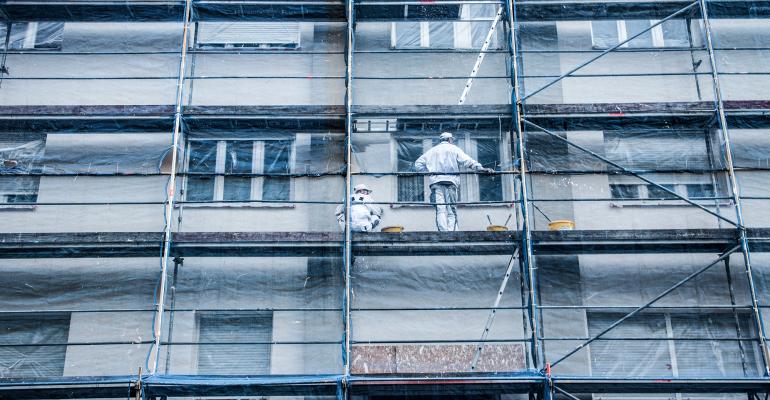(Bloomberg)—Commercial real estate firm Jones Lang LaSalle Inc. is seeking buyers for more than $12 billion worth of apartment buildings, testing demand for an asset class that has held up in past downturns against the fallout from the coronavirus pandemic.
The firm is targeting investors who raised money prior to the Covid-19 outbreak as well as would-be buyers who are shifting money away from hotels, shopping malls and other types of real estate suffering from social-distancing efforts.
Buying apartments has served investors well in past recessions, as Americans lost homes to foreclosure and renters prioritized housing payments over car loans, credit card bills and other expenses. A downturn also tends to halt new construction, limiting the creation of new supply and allowing landlords to raise rents as the economy recovers.
“There’s not going to be any new projects started for the foreseeable future,” said Matthew Lawton, executive managing director at JLL. “We’re going to be sitting around in 2023 saying there’s a significant imbalance in supply and demand.”
The commercial property market has largely been frozen as buyers and sellers struggle to agree on what buildings are worth. Transactions for apartments plunged 70% in the second quarter compared with a year earlier, according to data from Real Capital Analytics.
JLL is currently pitching more than $9 billion in apartment deals, including single buildings and portfolios, and preparing to bring another $3.2 billion worth to the market over the next 30 days. The push for investors comes as more and more renters struggle financially.
One in three renters failed to make their full payment during the first week of July, according to an Apartment List survey, and expiring unemployment benefits will increase duress. Nearly 12 million renters face the risk of eviction over the next four months, according to a separate analysis.
Lawton said the expiration of federal unemployment benefits are a bigger issue for lower-end apartments, whose tenants are more likely to work in the retail and hospitality industries. Investors, meanwhile, are showing less interest in big cities like New York and Los Angeles, where renters typically spend a greater share of their income on housing.
Instead, Lawton expects buyers to prize suburban apartments, as well as units in Denver, Charlotte, North Carolina, Tampa, Florida, and other secondary markets.
To contact the reporters on this story: Patrick Clark in New York at [email protected];
Natalie Wong in New York at [email protected].
To contact the editors responsible for this story: Craig Giammona at [email protected]
Christine Maurus
© 2020 Bloomberg L.P.





